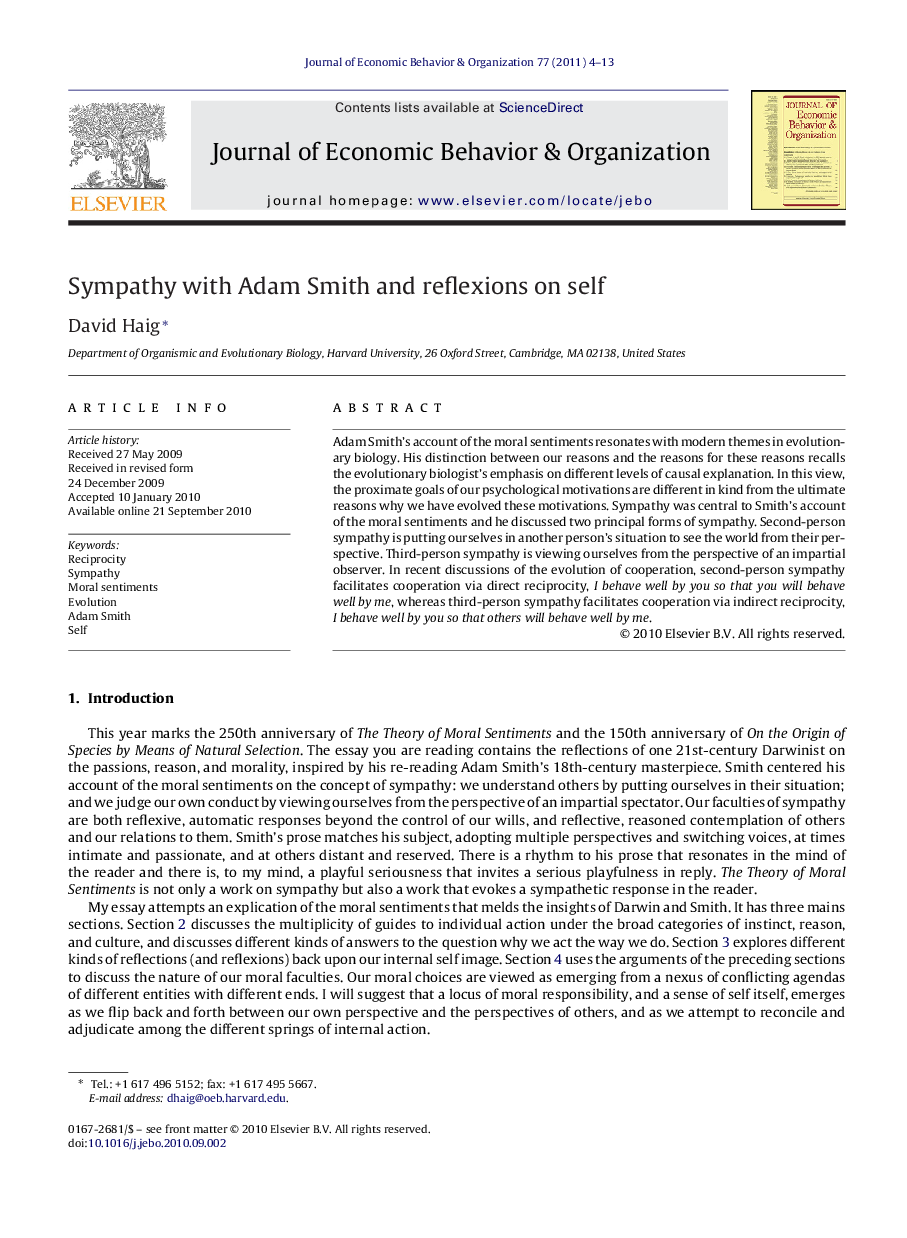| Article ID | Journal | Published Year | Pages | File Type |
|---|---|---|---|---|
| 884071 | Journal of Economic Behavior & Organization | 2011 | 10 Pages |
Adam Smith's account of the moral sentiments resonates with modern themes in evolutionary biology. His distinction between our reasons and the reasons for these reasons recalls the evolutionary biologist's emphasis on different levels of causal explanation. In this view, the proximate goals of our psychological motivations are different in kind from the ultimate reasons why we have evolved these motivations. Sympathy was central to Smith's account of the moral sentiments and he discussed two principal forms of sympathy. Second-person sympathy is putting ourselves in another person's situation to see the world from their perspective. Third-person sympathy is viewing ourselves from the perspective of an impartial observer. In recent discussions of the evolution of cooperation, second-person sympathy facilitates cooperation via direct reciprocity, I behave well by you so that you will behave well by me, whereas third-person sympathy facilitates cooperation via indirect reciprocity, I behave well by you so that others will behave well by me.
